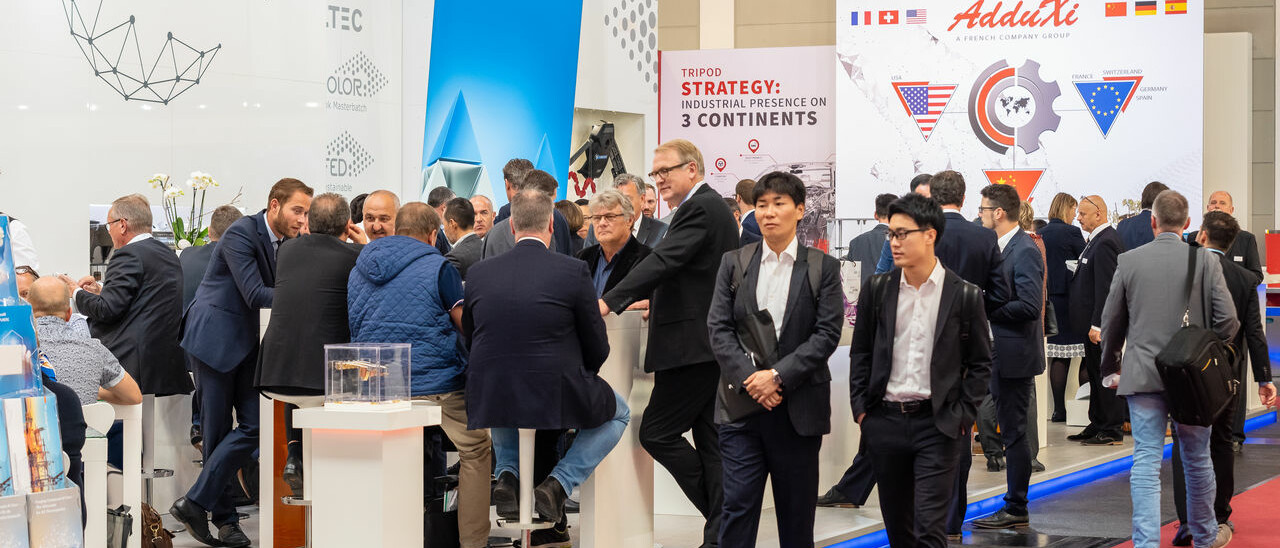Fakuma 2021: Topics of the future

For the plastics processing industry, in addition to the digital transformation, the change from a linear to a circular economy is also on the agenda. That’s why the 27th Fakuma – International Trade Fair for Plastics Processing – from October 12 to 16, 2021, in Friedrichshafen, Germany, is generating particular interest. Fakuma is widely recognized as the top event in injection molding, extrusion technology, thermoforming and 3D printing.
German plastics processors are in pole position because they are meeting the challenges posed by change at different levels. Fakuma will therefore be an outstanding trade show event with forward-looking issues and sustainable solutions. The digital transformation is in full swing – with increasing digitization and automation, companies are creating optimized processes, higher plant availability, more productivity – and ultimately future viability. The transformation from a linear to a circular economy is also a challenge that is anything but trivial: plastics recycling is not just a buzzword, but generates opportunities and markets worldwide. The top issue for plastics processors is the recyclability of their own products on the one hand and the use of recyclates on the other. Here, performance, quality and hygiene requirements must be met in equal measure. At the same time, the industry is struggling in many places with a one-sided negative perception. Julia Große-Wilde, Managing Director of Gesamtverband Kunststoffverarbeitende Industrie e. V. (GKV) makes it clear: “If we want to achieve our climate targets, we can’t do without plastics – we need them for this!”
Industry topics: carbon footprint, sustainability, recycling
The main cause of the negative image is the global input of waste into the environment. The GKV, as the voice of the industry and intermediary, is therefore stepping up its dialogue and educational efforts. It is also clear that plastics have ecological advantages, as Julia Große-Wilde points out: “Companies themselves have a vested interest in making their products sustainable. Minimizing production waste or recycling it are not only ecologically but also economically sensible objectives. In addition, they need to think more about the end of life when designing a product,” says the GKV managing director. She notes that the protective function of packaging is rarely perceived or even appreciated. “Packaging plays a major role in making our consumption more sustainable. When spoiled food ends up in the garbage can instead of on the plate, this is more harmful to the climate than the production of the packaging. But in fact, through design for recycling, consistent collection and sorting, and continuous development in both recycling and the use of recyclates, we need to ensure that plastics move more strongly in material flows. That’s the big challenge for our industry and also our society.”
Plastics are indispensable and important products of the future
It is impossible to imagine lightweight construction without the importance of modern plastics, which brings resource savings at various levels – both in the automotive industry and in general mechanical and plant engineering. Fakuma 2021, from October 12 to 16, 2021, will thus once again be the platform for everything and everyone of distinction in industrial plastics processing. Here, new products and technologies are presented as well as trend topics are discussed. As an industry and technology barometer, Fakuma is traditionally the world’s leading trade event on the subject of injection molding and the first port of call when it comes to innovations relating to materials, machines, peripherals, processes and simulation. Until the date of the face-to-face event, Fakuma-Virtuell proves to be a useful tool for professional exchange.